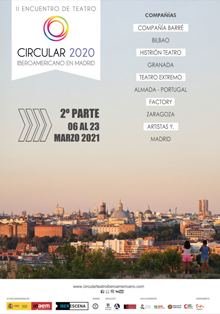Mohsen Vahedi
Analyst of international political economy and Iranian affairs
Since January 2021, an extra window has been opening in order to evaluate trade and investment between Iran and the European Union (EU). Despite the political aspect of the agreement has been safeguarded since then thank to diplomatic attempts between Iran and EU/E3, the commercial turnover has seriously impacted by the sanctions imposed by the United States since May 2018. With the changes concerning the new perspectives, we can expect a new phase in economic relations this year.
Business is among the factors that can boost relationships. As an important economy at the EU level, Spain has the ability to contribute and increase its role in the ties between Europe and Iran.
Relations between Spain and Iran
The partial return of Iran to the world economy after the nuclear agreement in July 2015 created a remarkable condition for business insertion. The increase in trade between Iran and Spain in 2016 was a reflection of the visit of the Spanish delegation headed by Minister of Foreign Affairs Mr. García-Margallo at the end of 2015. Later, the strategic importance of the nuclear agreement was another reason that motivated the visit of Mr. Dastis to Iran in February 2018, and the meeting of Mr. Kharazi, the secretary of the Strategic Council for Foreign Relations of Iran with Mr. Borrel Fontelles in Madrid in June of the same year.
The graph below represents the substantial increase in the value of bilateral trade in 2016 and 2018, stimulated by the lifting of financial sanctions and Iran’s GDP boom. The significant leap in mass imports from Iran (yellow line) consisted mainly of petroleum and petrochemical products. Spain’s manufacturing exports (blue line) also experienced a rise thanks to increases in income from Iran and increased demand for intermediate manufactured goods to revive some industries.

As can also be seen in the graph, the “maximum pressure” on various sectors of Iran, the end of the oil waivers for oil buyers and the financial blockade impacted the relationship with Europe and Spain since the middle of 2018 and throughout 2019. The decline in bilateral trade continued in 2020 due to the COVID-19 crisis.
Nevertheless, what is considerable is the resistance of the Iranian industry against the collapse, which allowed it to continue trade with Europe. This in turn is hopeful news to base the future of economic relations independent of the oil sector.
Potentialities to strengthen economic relations in 2021
The positive signs led to the convening of the Europe-Iran Business Forum on March 1-3, 2021, in which participated the European Commission, International Trade Center (ITC), Iranian Export Promotion Organisation (ITPO) and several chambers of commerce including Iran-Spain. In the face of a new phase of post-covid insertions and new opportunities in the Iranian economy, there are also prospects for strengthening Spain’s presence.
The reasons for the commercial development with Iran can be justified by the resistance of its economy and the producing companies against the crises. With a population of 84 million inhabitants and young human capital, it has made it possible to diversify its productive structure and move away from excessive dependence on oil revenues. Iranian agricultural and manufacturing productions have compensated for a part of the brutal decline in oil exports and have guaranteed the importation of materials from Europe and Spain. Despite the obstacles, Iran’s ongoing sectoral transition makes it possible to demand a variety of intermediate goods and new technologies.
The statistics published by Spanish Institute for Foreign Trade (ICEX) show that the most important products that Spain has exported to Iran between 2018 and 2020 are machinery, pharmaceutical products, electrical materials, paper and food products, among others. Mechanical tools are the goods with the highest value and share, the export of which has decreased by around 50% in the last two years. On the other hand, Spain has imported agri-food products from Iran (especially tea, saffron and other medicinal herbs), nuts, metal and plastic products, among others.
For the upcoming years, Iran plans to develop some industries such as pharmaceuticals, auto parts, petrochemicals such as plastics, and certain products from the agribusiness sector. In addition to direct trade, investment opportunities could consider export-oriented small and medium-sized enterprises. Financial transactions are essential; For this, there are projects such as the Due Diligence Help Desk launched and financed by the European Commission to advise companies that wish to do business with Iran.
Spain as a participant in Europe’s relationship with Iran
The relations between Iran and Spain are a function of the relations between Iran and the EU, and therefore, despite peaks and valleys, it has shown continuity over the years. There is no doubt that the lifting of sanctions by the US administration will leverage economic ties with Iran, but it should also not be forgotten that, in the meantime, the EU is trying to manoeuvre its own long-term strategies.
The public and diplomatic sectors of the EU countries, in this case, Spain, can play a fundamental role in the insertion of Spanish firms in the new opportunities of the non-oil sectors of Iran. Spain’s role may have the best results if the country coordinates with the European institutions for commercial normalisation with Iran. This also requires an updated roadmap of bilateral and multilateral economic diplomacy.
© All rights reserved







